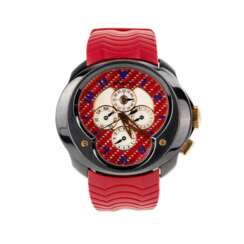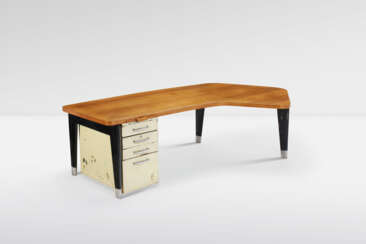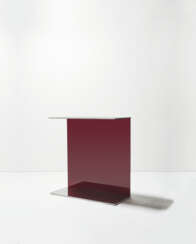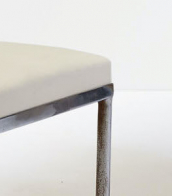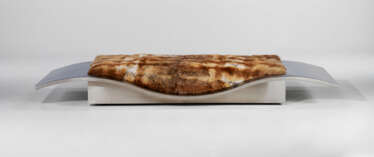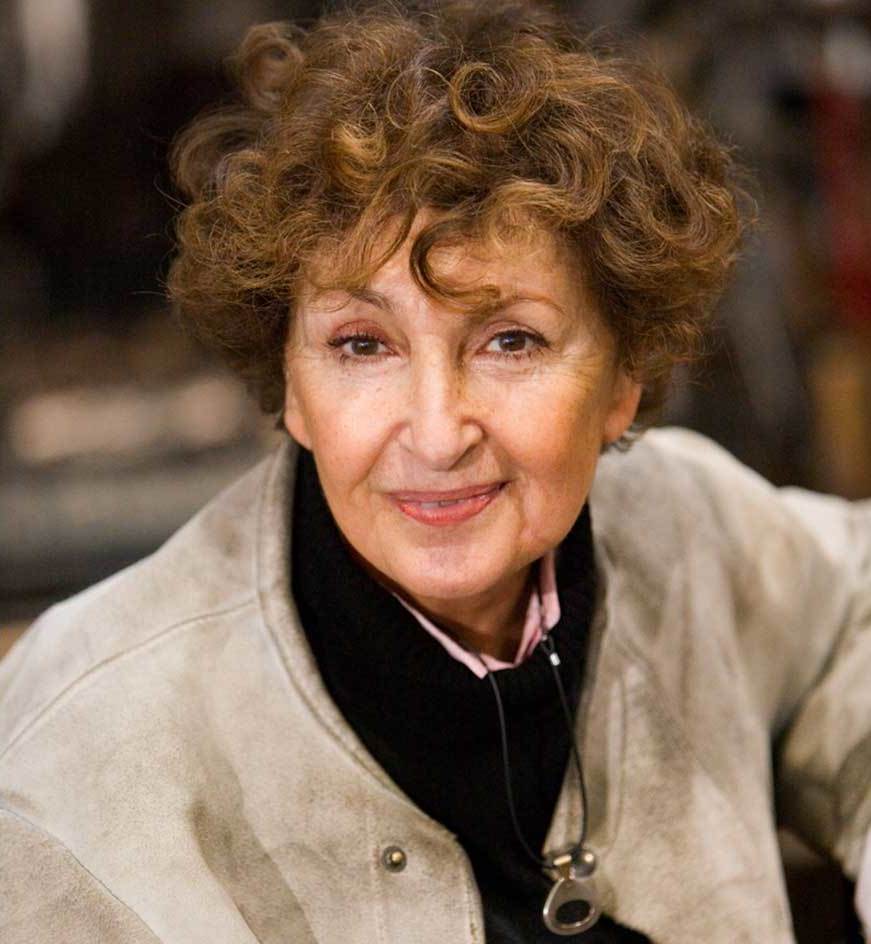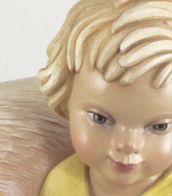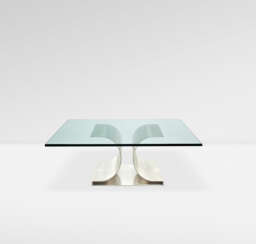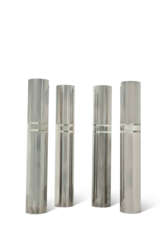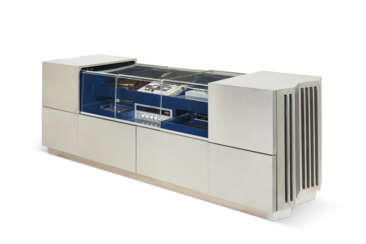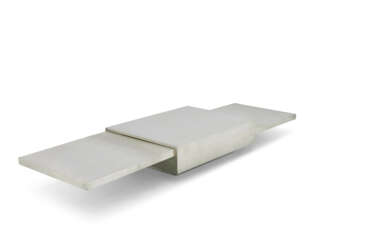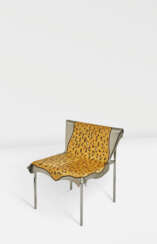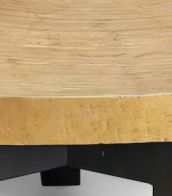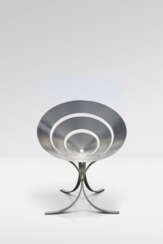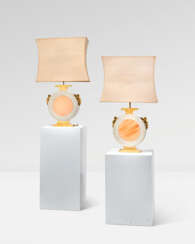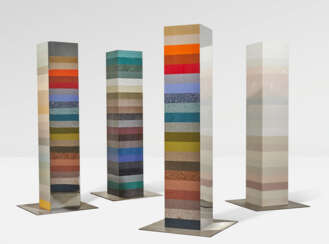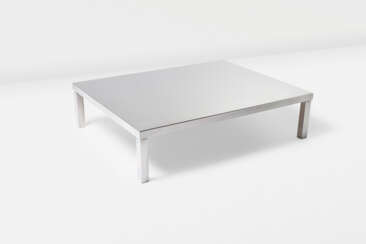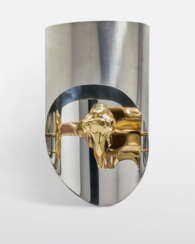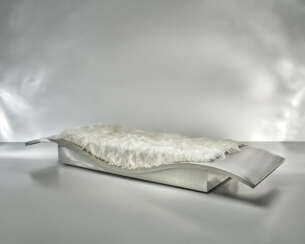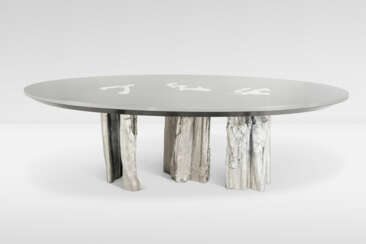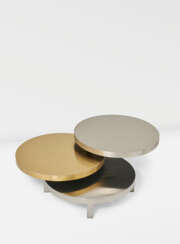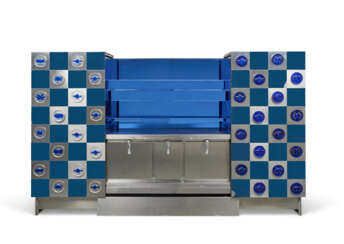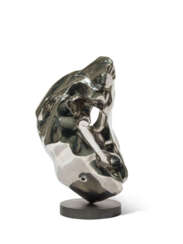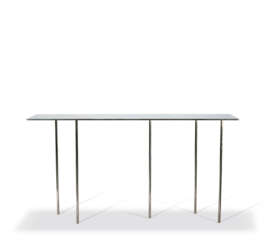acier inoxydable
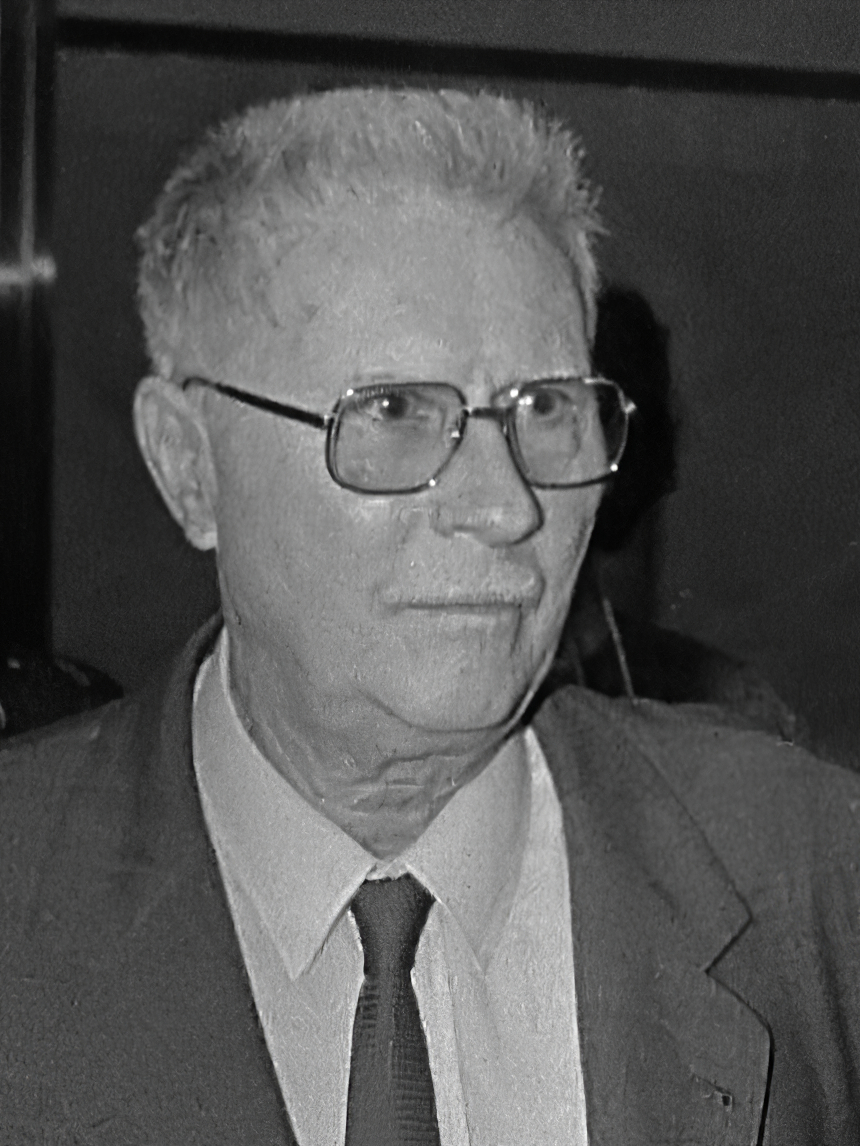
Jean Prouvé was a French metal worker, self-taught architect and designer. Le Corbusier designated Prouvé a constructeur, blending architecture and engineering. Prouvé's main achievement was transferring manufacturing technology from industry to architecture, without losing aesthetic qualities. His design skills were not limited to one discipline. During his career Jean Prouvé was involved in architectural design, industrial design, structural design and furniture design.
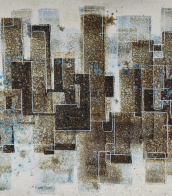
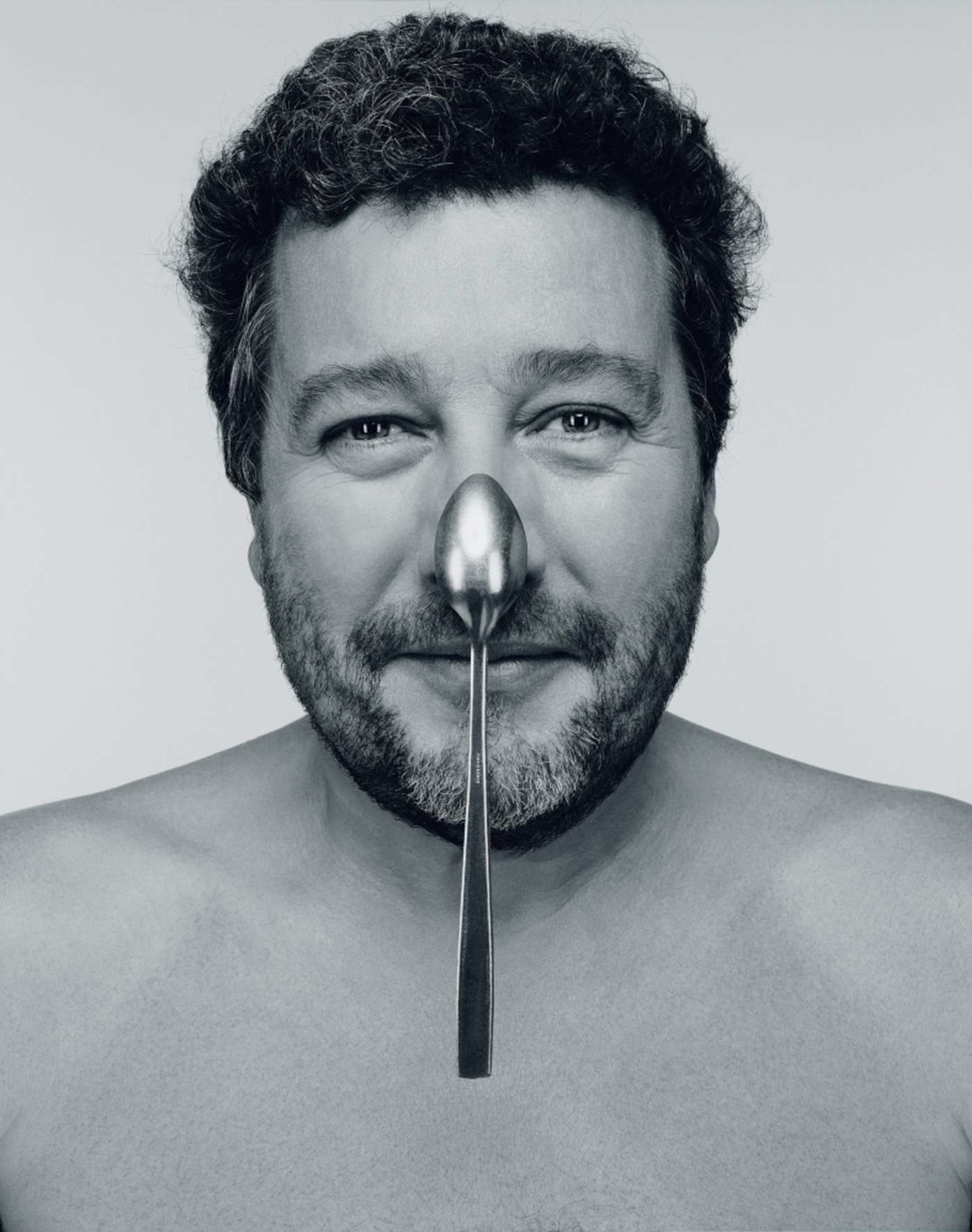
Phillippe Starck is a French designer of interior and mass-produced consumer products.
Starck was educated at the École Nissim de Camondo in Paris, worked for Adidas before founding his first industrial design company, Starck Product, which he later renamed Ubik and went international. He worked with manufacturers in Italy including Driade, Alessi, Kartell, Dimmer in Austria, Vitra in Switzerland and Disform in Spain. He became known for a wide range of his designs, including interior design, architecture, home furnishings, furniture, boats and other vehicles.
Starck has designed residences, hotels, restaurants and other buildings in Tokyo, in Paris, in New York, in Mexico City and other world cities. He has designed the Xiaomi smartphone, the DIAL GPS tracking bracelet, and other technologies. In 2018, Stark collaborated with Axiom Space to design the interior of the International Space Station's habitation module, and a year later, he presented a chair design created with artificial intelligence.
Based on his principles of "democratic design," Starck focused specifically on creating designs for mass-market products rather than unique units. It is impossible to list all the products on which the tireless worker Phillippe Starck has worked and continues to work, the main goal of which is to improve the lives of as many people as possible, as far as possible.
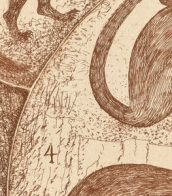
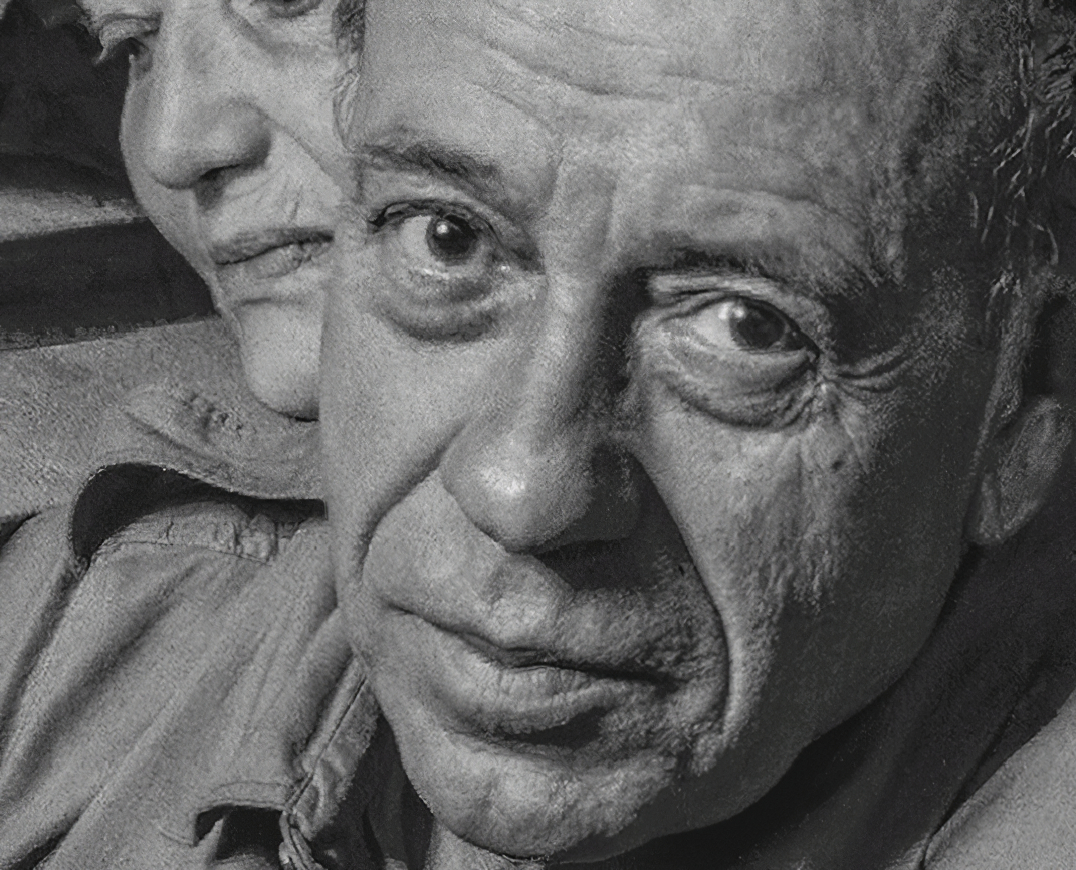
François-Xavier Lalanne was a French painter and sculptor. He studied sculpture, drawing and painting at the Académie Julian. Since the 1960s he has worked as a couple with his wife Claude Lalanne.


Phillippe Starck is a French designer of interior and mass-produced consumer products.
Starck was educated at the École Nissim de Camondo in Paris, worked for Adidas before founding his first industrial design company, Starck Product, which he later renamed Ubik and went international. He worked with manufacturers in Italy including Driade, Alessi, Kartell, Dimmer in Austria, Vitra in Switzerland and Disform in Spain. He became known for a wide range of his designs, including interior design, architecture, home furnishings, furniture, boats and other vehicles.
Starck has designed residences, hotels, restaurants and other buildings in Tokyo, in Paris, in New York, in Mexico City and other world cities. He has designed the Xiaomi smartphone, the DIAL GPS tracking bracelet, and other technologies. In 2018, Stark collaborated with Axiom Space to design the interior of the International Space Station's habitation module, and a year later, he presented a chair design created with artificial intelligence.
Based on his principles of "democratic design," Starck focused specifically on creating designs for mass-market products rather than unique units. It is impossible to list all the products on which the tireless worker Phillippe Starck has worked and continues to work, the main goal of which is to improve the lives of as many people as possible, as far as possible.

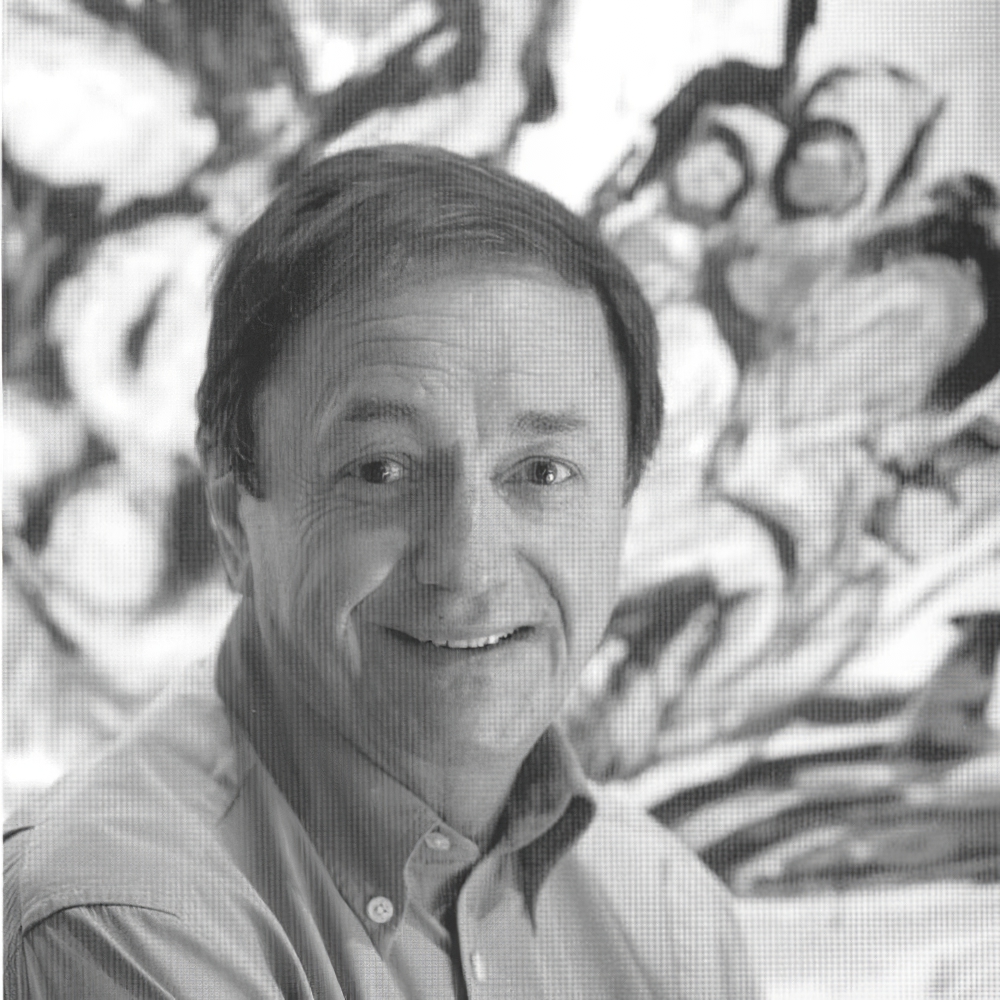
Michel Boyer was one of the last great interior designers who remained true to the principles of modernity.
Boyer collaborated with Dior, Lanvin, Balmain and designed interiors for hotels, embassies and numerous corporate headquarters. His private clients have included Elie de Rothschild, Liliane Betancourt and Karim Aga Khan.
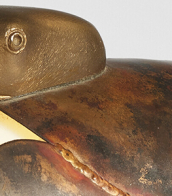
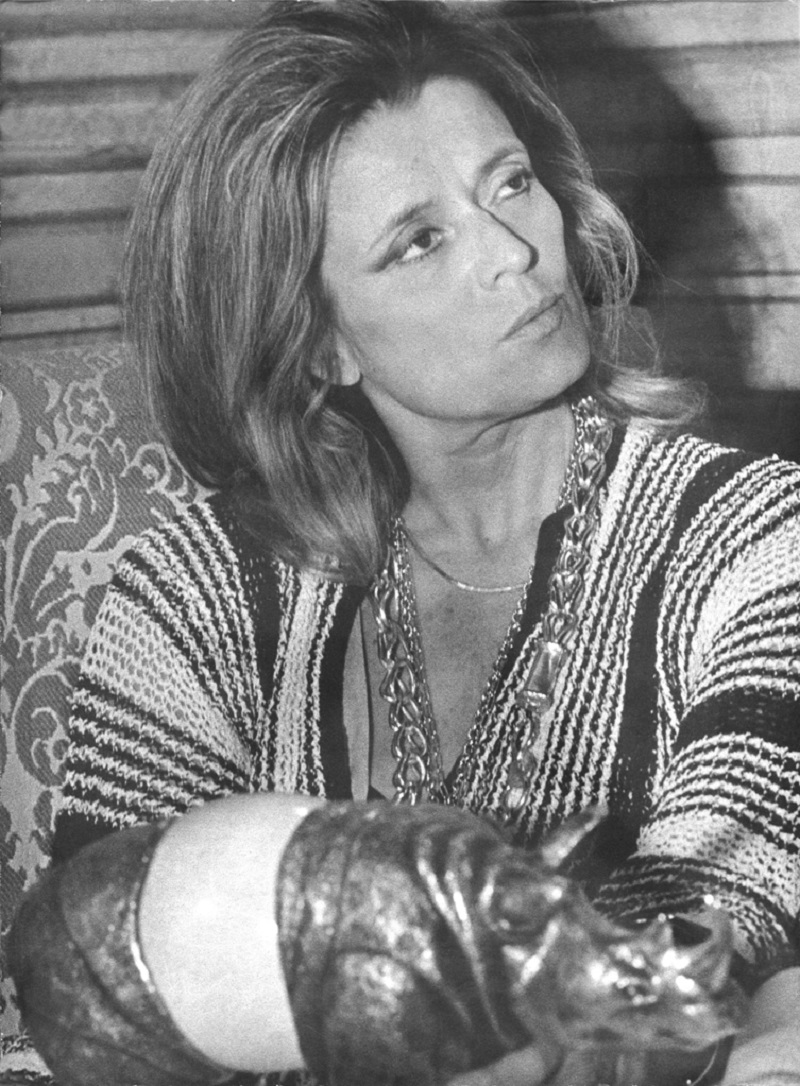
Gabriella Crespi was an Italian artist-designer whose work spanned furniture design, jewelry and sculpture.
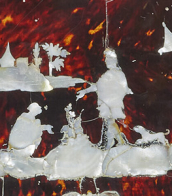
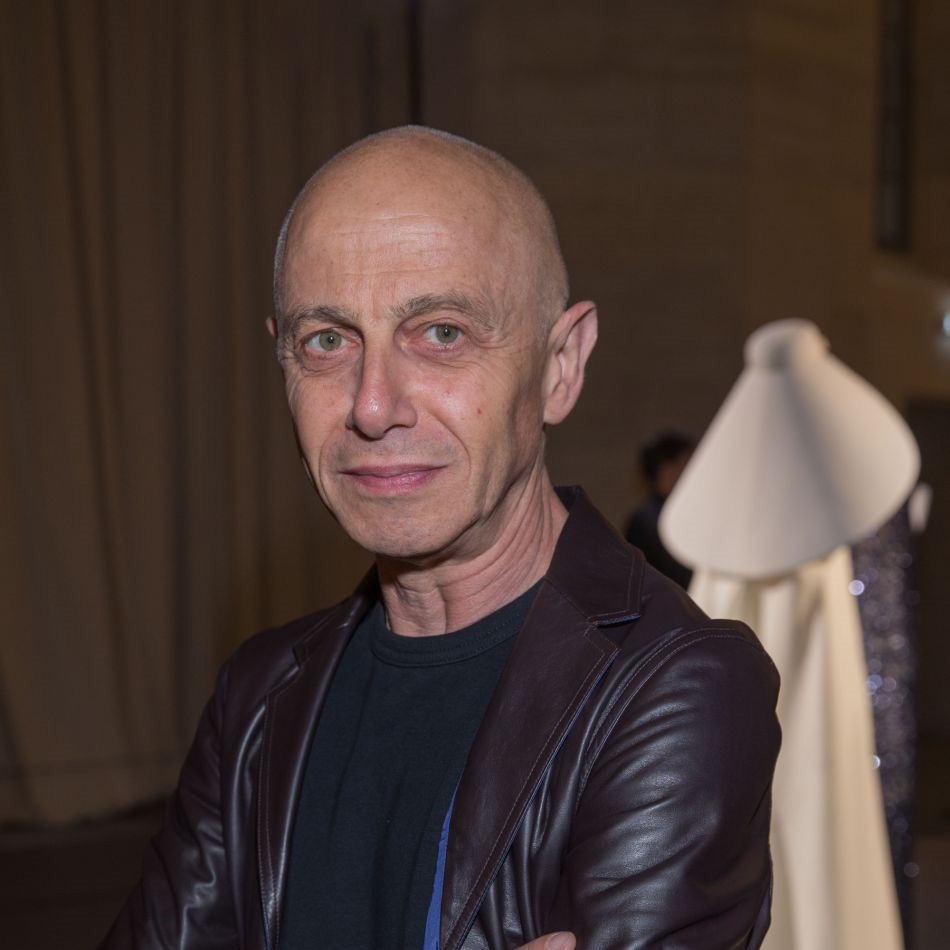
Martin Szekely is a French designer, the son of Hungarian immigrants.
Martin Szekely's work is characterised by a desire for the simplest possible expression of the object while respecting functional priorities.
He was named Designer of the Year at the 1987 Paris Furniture Fair and received the Alfred Dunhill Outstanding Designer of the Year award in 1999.


Martin Szekely is a French designer, the son of Hungarian immigrants.
Martin Szekely's work is characterised by a desire for the simplest possible expression of the object while respecting functional priorities.
He was named Designer of the Year at the 1987 Paris Furniture Fair and received the Alfred Dunhill Outstanding Designer of the Year award in 1999.

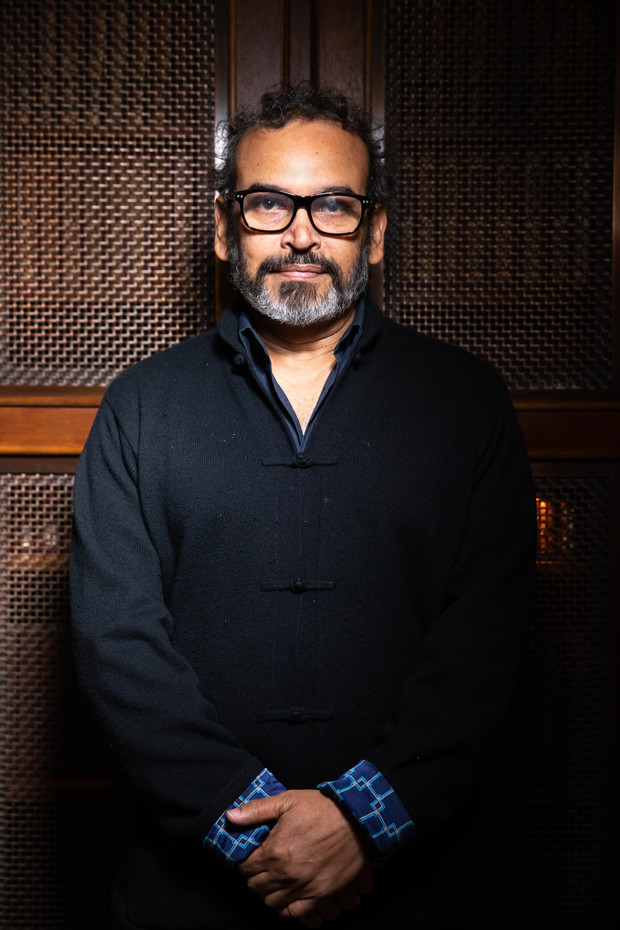


Martin Szekely is a French designer, the son of Hungarian immigrants.
Martin Szekely's work is characterised by a desire for the simplest possible expression of the object while respecting functional priorities.
He was named Designer of the Year at the 1987 Paris Furniture Fair and received the Alfred Dunhill Outstanding Designer of the Year award in 1999.

